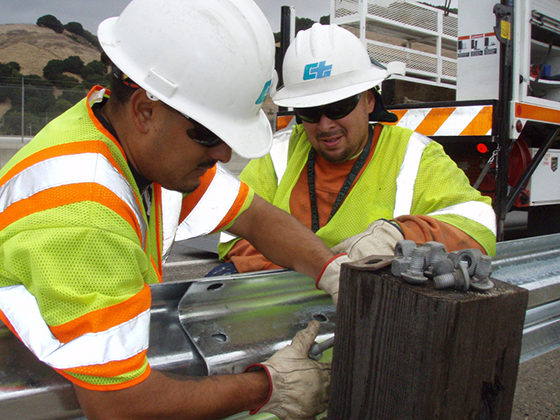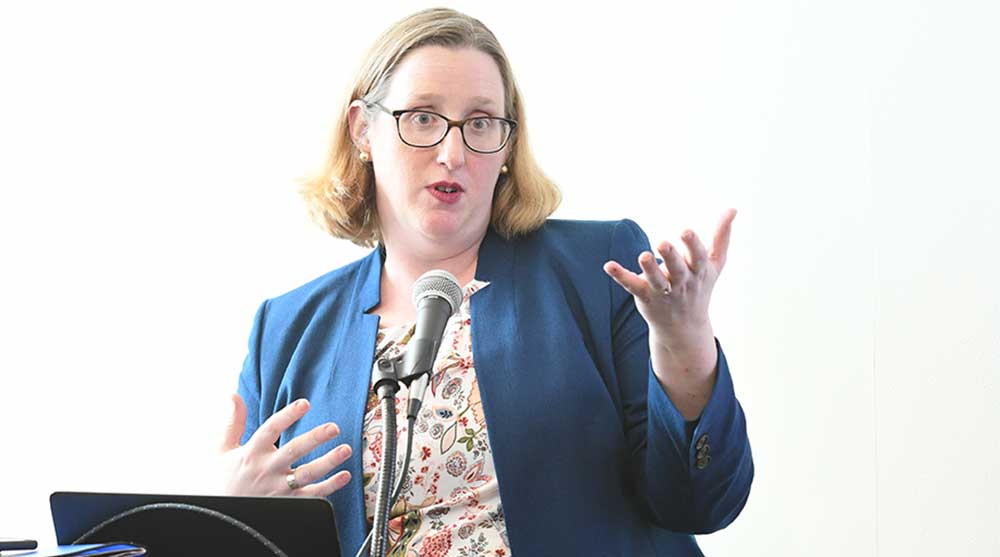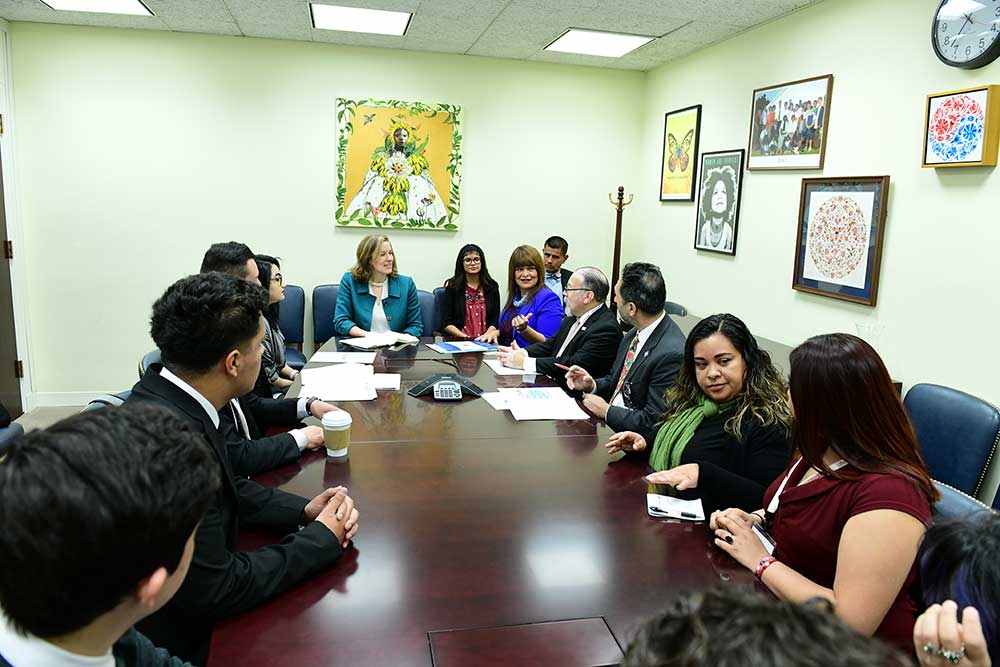Advocating for economic justice at the 2019 Changemakers Summit
Is the economy strong? It really depends on who you ask.

While the poverty rate for Hispanics is at an all-time low, it remains significantly higher than that of other racial and ethnic groups. These gains stand in danger from federal and state policies that threaten to rollback progress.
“While Latinos have historically been optimistic about the economy and their place in it, the current share of Latinos describing their economic situation as “excellent” or “good” dropped by 10 percentage points between 2015 and 2018. Latinos also worry about their children’s prospects: the share of Latinos who say their children will be better off financially than they are declined dramatically from 72% to 54% between 2015 and 2018.” – Stronger Communities, Stronger America: A Latino Policy Agenda for the 116th Congress
We advocate for policies that increase pathways to the middle class for Latinos and all Americans. This was the focus of an economic justice policy briefing held last week as part of the 2019 UnidosUS Changemakers Summit, a three-day experience of workshops and sessions aimed at helping aspiring and seasoned advocates train to effectively advocate on Capitol Hill.
Youth advocates at the summit also received training on how to advocate for their communities in preparation for their meetings with legislators on Capitol Hill.
This is what they’re fighting for.
RAISE WAGES FOR AMERICAN WORKERS
Latinos will represent more than 75% of labor force growth within the next eight years. By 2024, one in five workers will be Latinos. At that point, more than 28 million Latinos will be part of the American workforce.
Congress has not raised the federal minimum wage ($7.25 an hour) since 2009 and has not increased the tipped minimum wage ($2.13 an hour) for more than 20 years.
“It’s not just raising it once. It’s raising it every year to keep up with the cost of living,” said Jennifer Brown, Associate Director of UnidosUS’s Economic Policy Project.

Raising the minimum wage would benefit approximately 9.3 million Latino workers. It would give Latinos a raise of $5,100 annually, making a difference for millions of Latinos and their families across the country.
Raising the federal minimum wage will also ensure that more people can afford the basics and help the economy grow.
“There’s a difference between getting by and getting ahead,” said Sabrina Terry, Senior Program Manager of UnidosUS’s Economic Policy Project.
EXPAND BENEFITS FOR LOW-WAGE WORKERS

Less than half of Latinos have access to any type of paid leave, the lowest of any racial or ethnic group. Additionally, less than half of Latinos have access to paid sick leave, and 74.9% of Latinos do not have access to paid family leave.
“Families are forced to choose between their financial security and taking care of their loved ones,” Terry explained.
Without access to paid family and sick leave, 27.5 million Latinos must choose between taking care of their families or putting food on the table.
Expanding access to paid family and sick leave would strengthen Latino families’ financial security, improve the health of Latino children, and reduce the burden on employers.
CLOSE THE WAGE GAP
Latina workers face the largest wage gaps among women. For example, for every dollar paid to White, non-Hispanic men, Latinas in the United States make just 53 cents.
Pay equity is the first step to ensuring that working Latinas, now and in the future, have a more equal opportunity to become economically secure, as well as build and maintain health. Closing the wage gap would provide more than three additional years of child care; nearly 19 additional months of mortgage payments; more than two years of rent; almost two years of retirement contributions to a 401(k); and more than five years of retirement of contributions to an IRA.
KEEP HOUSING AFFORDABLE
In 2017, more than half of Latinos rented a home or an apartment. Of the 8.4 million Latino renters, 55% of them are cost burdened—meaning they pay more than 30% of their income on rent.
Agatha So, Policy Analyst at UnidosUS, broke down why this is such a problem. “The more money you pay in rent, the less money you have to tuck away for savings or a down payment,” she said.
In the next decade, Latinos are anticipated to have the most severe housing cost burden of any racial or ethnic group. Affordable housing is needed to help Latino renters manage expenses, establish savings, and transition to homeownership.
CONTINUING THE FIGHT FOR ECONOMIC JUSTICE
Toward the end of the session, So reminded the audience that their stories are powerful and that by telling them to their representatives, they have the opportunity to advocate for change.
“You represent constituents, you represent voters,” she said.
UnidosUS will continue to fight for a higher minimum wage, to close the pay gap, for paid leave policies, and affordable housing to ensure that Latinos have the tools necessary to build wealth and get ahead.
By Stephanie Presch, Content Specialist, UnidosUS


